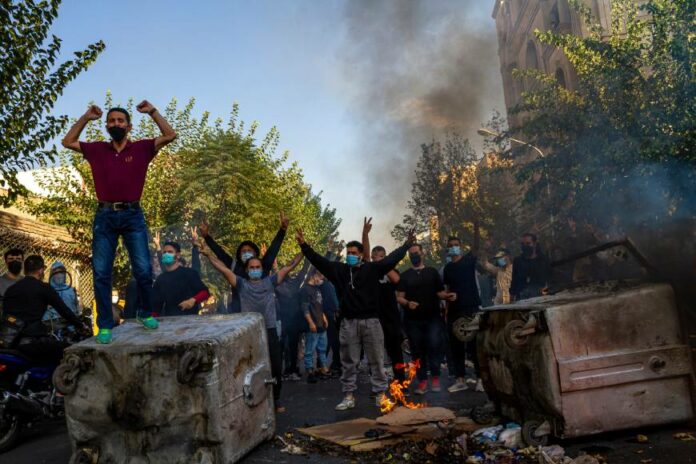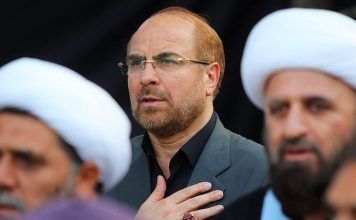
By Natasha Phillips
Public statements by 32 countries condemning the Islamic Republic of Iran for its brutal and targeted oppression of women have been issued on the two-year anniversary of Mahsa Amini’s death.
The death on Sep. 16, 2022 of 22-year-old Mahsa Amini while in police custody triggered nationwide anti-government protests and launched the ‘Woman, Life, Freedom’ gender equality movement in Iran. Amini had been arrested for allegedly failing to follow the Islamic Republic’s mandatory hijab law. Evidence and testimonies provided to the United Nations established that Amini had been violently beaten and died as a result of torture and ill-treatment by Iran’s morality police.
Iran’s government responded to the largely peaceful protests with a brutal crackdown which led to over 20,000 detentions and the deaths of more than 500 people, including at least 50 children.
Iranians Mark Mahsa Amini’s Death, Pivotal Moment in Nation’s History
The 32 countries affirmed their support for Iranian women and girls and urged Iran’s government to address gender discrimination in the country, and to follow the rule of law in its detention, arrest and interrogation of individuals engaging in protests.
“On the anniversary of the death of Jina Mahsa Amini, we honor her memory and the ‘Women, Life, freedom’ movement driven by the courage and determination of countless Iranians, especially women,” said a Sept. 16 statement issued by the European Council of the European Union, which has 27 member states.
“The EU continues to call upon Iran to eliminate, in law and in practice, all forms of systemic discrimination against all women and girls in public and private life and to take gender-responsive measures to prevent and ensure protection for women and girls against sexual and gender-based violence in all its forms,” the statement added.
In a separate statement on Sept. 16, the UK, the US, Australia, Canada and New Zealand said: “We stand with women and girls in Iran, and Iranian human rights defenders, across all segments of society in their ongoing daily fight for human rights and fundamental freedoms.”
“The Independent International Fact-Finding Mission (FFM) on Iran, established by the United Nations Human Rights Council, has said that many of the human rights violations perpetrated against protesters amount to crimes against humanity. The Iranian government has yet to address these allegations and has not cooperated with this internationally recognized mandate,” they added.
Earlier, on Sept. 13, the FFM and the UN Human Rights Council noted that the Islamic Republic had not only failed to address the allegations, but had also stepped up efforts to oppress women in Iran.
Since April 2024, state authorities have “increased repressive measures and policies through the so-called ‘Noor’ Plan (noor meaning light in Persian), encouraging, sanctioning and endorsing human rights violations against women and girls flouting the mandatory hijab,” the FFM’s statement said. “In parallel, State authorities have increasingly invoked the use of the death penalty against women activists and scaled up executions against others who had expressed solidarity with the ‘Woman, Life, Freedom’ movement.”
“Although mass protests have subsided, the unabated defiance of women and girls is a continuous reminder that they still live in a system that relegates them to ‘second class citizens,’” the UN Human Rights Council statement added.
The increasingly harsh policies and associated punishments for women who fail to follow the Republic’s draconian dress code have included additional security patrols in public spaces, an increase in surveillance cameras in these spaces and the confiscation of cars and hefty financial penalties for breaches. Several women and girls have also died under mysterious circumstances following detentions by security police in Iran’s metro and after being shot at during car chases for alleged hijab violations.
Armita Geravand, a 16-year-old girl who sustained a head injury following an encounter with Tehran’s morality police died in October 2023 in hospital after she fell into a coma. Arezoo Badri, a 31-year-old mother of two was shot in the back by police and left paralyzed from the waist down after she refused to wear the mandatory hijab.
EXCLUSIVE: New UN Rapporteur on Iran to Focus on Gender Inequality, Executions
“Security forces have further escalated pre-existing patterns of physical violence, including beating, kicking, and slapping women and girls who are perceived as failing to comply with the mandatory hijab laws and regulations, as evidenced by scores of videos reviewed by the FFM,” the Human Rights Council said in its statement.







